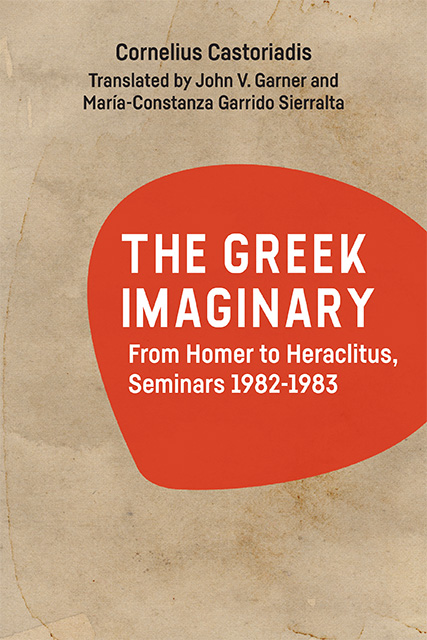X - Seminar from February 16, 1983
Published online by Cambridge University Press: 20 October 2023
Summary
Ἀναζίμανδρος […] ἀρχὴν […] ϵἴρηκϵ τῶν ὄντων τὸ ἄπϵιρον […], ἐζ ὧν δὲ ἡ γένϵσίς ἐστι τοῖς οὖσι͵ καὶ τὴν ϕθορὰν ϵἰς ταῦτα γίνϵσθαι κατὰ τὸ χρϵών· διδόναι γὰρ αὐτὰ δίκην καὶ τίσιν ἀƛƛήƛοις τῆς ἀδικίας κατὰ τὴν τοῦ χρόνου τάζιν, ποιητικωτέροις οὕτως ὀνoμασιν αὐτὰ ƛέγων (DK 12A9/B1).
Before entering into discussion of this fragment of Anaximander, I would like to remind you of what it is that we’re in the middle of. We spoke about two pairs of significations: chaos and kosmos, on the one hand; hybris and dikē, on the other hand. I told you how they’re similar, in my view. If there isn’t an identity or strict term for term equivalence, there’s certainly a very profound kinship. This kinship is nowhere spoken of as such—unless implicitly in this fragment of Anaximander, at least in the way I interpret it—but it is supported by everything we know about the Greek imaginary grasp of the world.
The explication of this non-rigorous homology drives us to distinguish on the anthropological plane between two levels of the meaning of the pair hybris/dikē. At the most profound level, the opposition itself erases itself to make way for something that is simply chaos, a law of annihilation reigning over the world.
- Type
- Chapter
- Information
- The Greek ImaginaryFrom Homer to Heraclitus, Seminars 1982-1983, pp. 161 - 178Publisher: Edinburgh University PressPrint publication year: 2023

